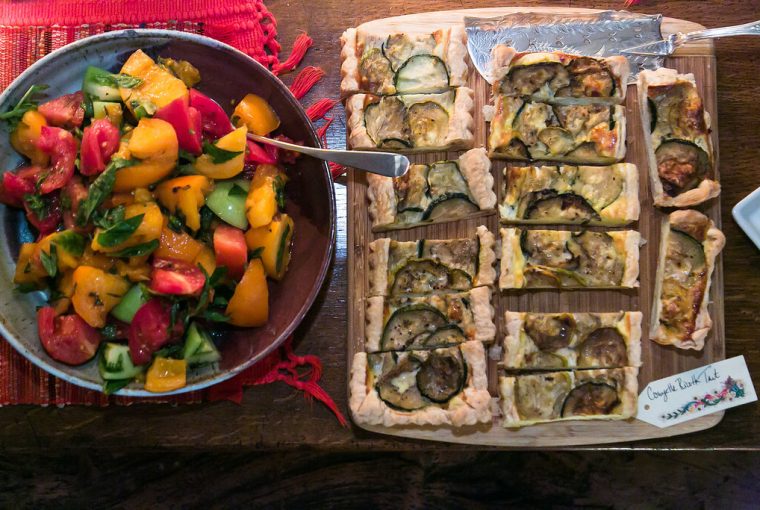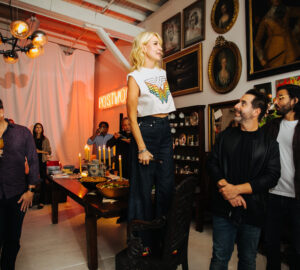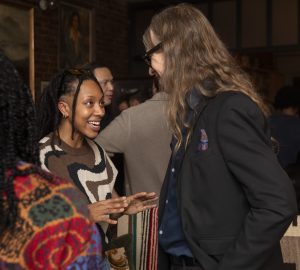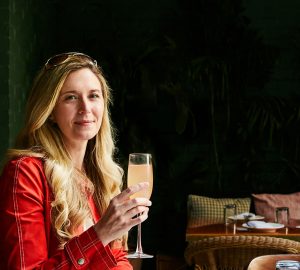In writing about why hosting salons is so rewarding, powerful and different from having a regular old dinner party, we’ve referenced the power of cooking for others: our guest contributor Jesse Browner even believes he can lull guests at his 30-year-running poker game into playing badly by satiating them with decadent sandwiches. But there’s actually a whole psychological science to be explored behind the social bonds created when we cook for others. As author and past POSTHOC salon speaker Michael Pollan once said, “Cooking gave us the meal and the meal gave us civilization.”
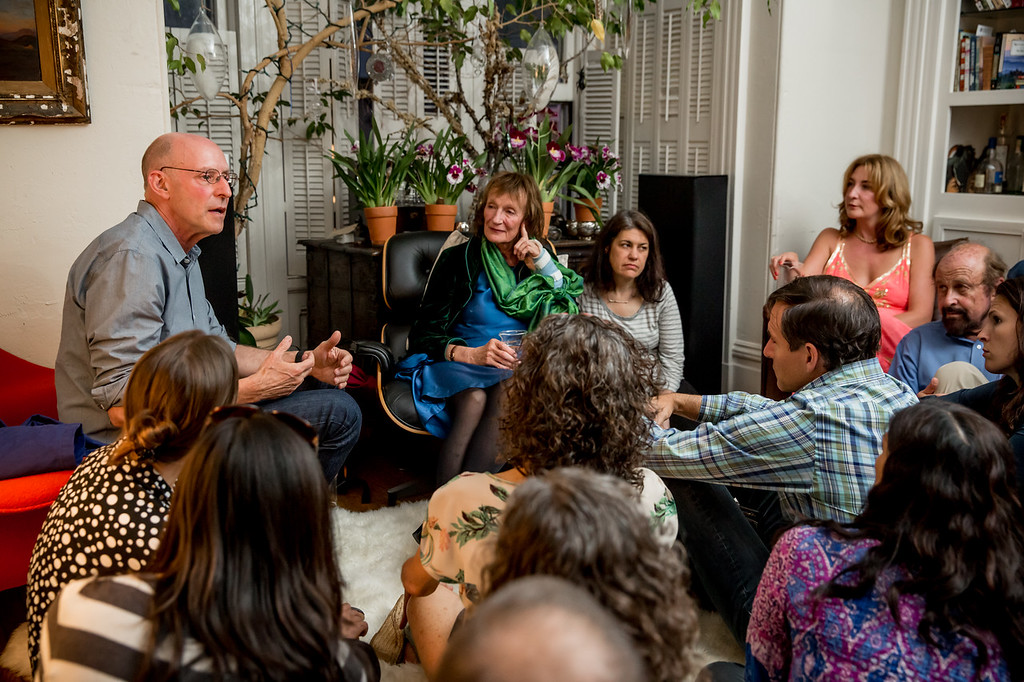
That’s a pretty wild idea to unpack, but from an evolutionary standpoint it begins to make sense rather quickly. When primitive humans were competing for food and resources there was almost never sharing of food outside the family and tribe, much less hosting. Alliances are made through relationships, so as humans were becoming more food-secure it’s only natural to learn to share to make potentially beneficial relationships with outsiders. As Jesse pointed out in his book The Duchess Who Wouldn’t Sit Down: An Informal History of Hospitality, there was likely an awkward transitionary period around food security where guests could be reasonably afraid they were being lured into a “feast” only to be eaten by the hosts!
Fortunately these days most people are only afraid to come over for a dinner party because they might feel shy and uncomfortable around strangers or about socializing generally, a much easier anxiety to overcome. But once the guests’ guard is let down and receives sustenance from the host, a very primal, subconscious bond begins to form. As Michal AviShai, a culinary arts therapist who has an MA in art therapy from Lesley College, told HuffPost in 2017, “Giving to others fills us in so many ways. And even more so when it’s cooking because feeding fulfills a survival need, and so our feeling of fulfillment comes not only from the good of the act of giving but also the fact that we have ‘helped’ in some very primal way. We have given fuel.”
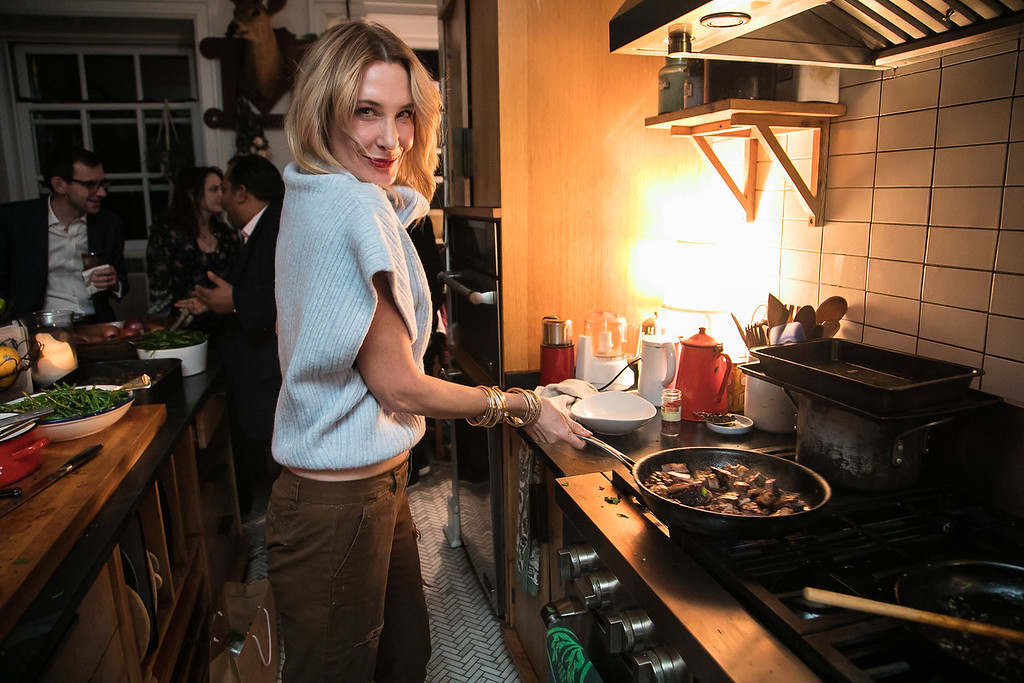
University of Kansas published a study last year about how sharing food creates secure attachment between individuals. Attachment theory, originally used to describe how an infant bonds with or attaches to their primary caretaker, revolutionized couples’ therapy towards the end of the 20th century when researchers began to notice early attachment patterns playing out across adult relationships. By offering food to a guest, a home-cooked meal nevertheless, which reflects a much higher degree of care and intimacy than sharing a pre-made pizza, we’re showing our guests and we’re a secure, safe person. The food we’ve prepared sends a deeply primal signal that we’re trustworthy and have the back of the individual on the receiving end, thus as person-to-person bonds are strengthened, so is that of the whole community.
In 2018 The National Center for Biotechnology Information did a systematic review of 11 research studies on the psychosocial impact of cooking for others and cooking in groups and found a clear pattern: participants were seeing both a mood and psychosocial boost within their own families and communities that lasted long after the dishes had been put away. Could it be that even the temporary experience of secure attachment via someone lovingly preparing and serving a meal gives us a boost of security and psychological nourishment we carry with us in a way that positively influences our other relationships? Perhaps we feel more secure during the experience of gathering and sharing food and thus become more secure afterwards, at least for a while.
Compared to the divisive social affirmation we get from going to a restaurant, parties sitting at separate tables being served by a staff, a shared, homemade meal is a stark contrast. As author Alain de Botton points out in his book Religion For Atheists, “The number of people who nightly patronize restaurants implies that these places must be refuges from anonymity and coldness, but in fact have no systematic mechanisms by which to introduce patrons to one another, to dispel their mutual suspicions, to break up the clans into which people chronically segregate themselves or to get them to open up their hearts and share their vulnerabilities with others.”
So if Michael Pollan is correct about the meal giving birth to civilization, and in light of the information shared above, we will now be so bold as to suggest that cooking for each other, sharing a meal, sharing ideas, is how civilization might find its footing again. The population, particularly in the U.S., feels so divided right now – perhaps more eye contact with our friends, neighbors and possibly, perhaps even ideally, people we don’t agree with about everything, can make us feel connected and restore some civility around here. You could, if you only knew how, meet this call to action head-on by hosting a salon, so here’s everything you need to know about hosting so you can be the salon host you wish to see in the world.
